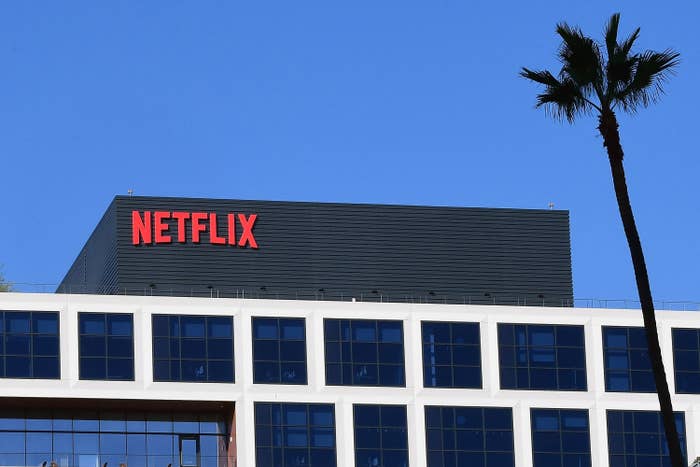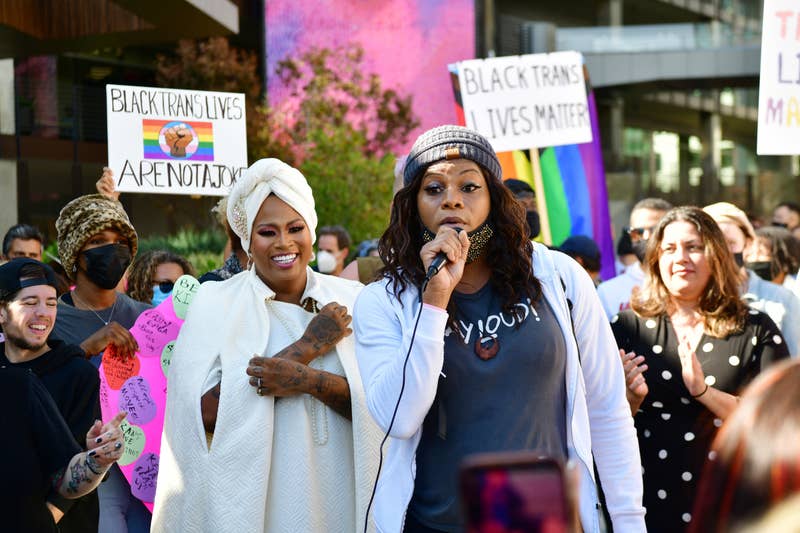NOT SO GREAT LAKE
Lake Superior is among the fastest-warming lakes on the planet. Climate change may be the culprit behind its algae blooms too
2021/10/22 03:14 (CDT)
© Chicago Tribune

Erin Hooley/Chicago Tribune/TNS
APOSTLE ISLANDS NATIONAL LAKESHORE, Wis. — The kayakers stood for a moment on the beach, marveling at the clear sweep of blue.
On a warm fall day along the south shore of one of the world’s largest freshwater lakes, the sun lolled toward the horizon, miles out from the peppered, coppered grains of sand anchoring the kayaks. Fresh off their first trip through the sea caves of the Apostle Islands National Lakeshore, the twin sisters from Chippewa Falls, Wisconsin, listed off Lake Superior’s “Caribbean blue” water and cold temperatures, its vastness.
“I would never have guessed it would have happened here,” said Jessie Rubenzer, with a glance toward the water.
Jenn Short echoed the thought: “I would never have guessed.”
“It’s all perfect beach,” Rubenzer said. And, said Short, “Perfect water.”
When it’s not green.
A bloom of blue-green algae, or cyanobacteria, appeared in Lake Superior about a decade ago, sending scientists in search of answers to why a worrisome problem was surfacing in a lake that holds a tenth of the earth’s surface freshwater.
The blooms, which have cropped up in all the Great Lakes, can deplete oxygen and cut off light, harming organisms trapped underneath. They sometimes create toxins that threaten the health of fish, dogs and humans, and make their way into water intakes. How and why toxins accompany some blooms is still a bit of a mystery.
With their ephemeral nature — the handful of blooms that have occurred in Lake Superior have been mostly small and short-lived — samples and good data are limited.
Since the first reported Lake Superior bloom in 2012, no serious levels of toxins had been confirmed.
That changed last month with a bloom near Superior, Wisconsin, that left a beach’s water streaky green. A toxin more potent than cyanide was detected just beyond the level set for safe swimming by the U.S. Environmental Protection Agency.
Confirmation gave scientists pause. Another change.
Lake Superior is among the world’s fastest-warming freshwater bodies and has increasingly borne the force of what used to be considered once-in-a-lifetime storms. Weather extremes fueled by human-caused climate change may imperil a lake whose reputation rests on its unspoiled water.
Algae blooms are generally driven by temperature, sunlight, water conditions and nutrients — primarily phosphorus, which can come from farm fertilizer and manure that eventually wash into lakes.
But among the Great Lakes, Lake Superior is an anomaly.
Unlike Lake Erie and Green Bay in Lake Michigan — warmer, shallower and surrounded by sources of agricultural runoff — Lake Superior is cold, deep and nutrient poor. Blooms have appeared in northern Canadian waters, but most span a popular recreational stretch from Duluth to the Apostle Islands, where land cover is largely forest and woody wetlands; agriculture and urban detritus are minimal.
Climate change appears to be a primary actor.
“The data have convinced me that the changing climate system has pushed Lake Superior into a new state, one where we get these blue-green blooms,” said Robert Sterner, the director of the Large Lakes Observatory at the University of Minnesota Duluth. “One of the things that’s driving our work is if, in fact, we’re in the beginning of something that’s getting worse, we really owe it to the world to try to understand this circumstance as best we can.”
A group of Midwestern scientists can’t reverse decades of burned fossil fuels or a lack of political will.
What they can do is head back out into the water.
This summer, a boost in funding came from the Cooperative Science and Monitoring Initiative, an ongoing binational survey of the Great Lakes. All summer, scientists from local universities and state and federal agencies, assisted by real-time buoys and even an underwater glider named for the genus of the common loon, have been out on the lake and in the lab, collecting, filtering, testing — and hoping the water tells a story.
What scientists can learn from Lake Superior may benefit other lakes already struggling with algae blooms as climate change threatens to make things worse.
Hannah Ramage, monitoring coordinator with the Lake Superior National Estuarine Research Reserve, is used to keeping an eye out for a tinted surface when leaving the office. In September, she noticed the toxic bloom at Barker’s Island, where it looked like someone had dumped bright, green paint.
She also spotted some beachgoers with dogs who looked like they were headed toward the shore.
She offered a warning: “You might want to stay out of the water.”
‘Stacking the decks’
About 60 miles east of Barker’s Island, freshwater gurgled and spat between arched sandstone, eaten through and worn away along the Apostle Islands National Lakeshore. Evergreens hung from bluffs’ edges. Slivers of light illuminated crevices just wide enough to fit a kayak.
The sea caves, the result of natural processes over hundreds of millions of years, are a good reason to visit Lake Superior. When the water by Meyers Beach is clear.
In 2018, Brenda Moraska Lafrancois, aquatic ecologist with the National Park Service, heard of an unusual sight along the lakeshore, which includes nearly two dozen islands and a 12-mile stretch around the Bayfield Peninsula.
Populations of blue-green algae, skilled at adapting to a range of conditions and able to float in the water, exploded.
That August bloom, lasting days, covered more than 50 miles from the Duluth area to the eastern Apostle Islands. Sediment plumes lingered for weeks.
If one of the world’s largest lakes is showing these kinds of unexpected changes, Lafrancois said, “that’s something that’s worth paying attention to.”
Larger blooms have occurred in years with above-average temperatures and heavy rains capable of carrying loads of nutrients to the lake. One giant storm walloping the highly erodible clay and sediment can contribute more than a typical month’s worth of phosphorus.
In June 2012, an unusually intense storm caused more than $100 million in damage and unloaded 10 inches of rain around Duluth. Roads washed out. A half-dozen communities declared a state of emergency. More than a dozen animals drowned at the Lake Superior Zoo — two lucky harbor seals who escaped were recovered from the street.
A few weeks later, a filmy, green stretch spanned more than 12 miles of Lake Superior from Cornucopia, Wisconsin, to Little Sand Bay, but soon dissipated.
Six years later, another historic storm hit. About a month and a half after that, so did a massive bloom.
“We don’t know at this stage what the future holds,” Lafrancois said. “The years we’ve seen the biggest blooms in the past, these are years that have major storm events and flooding. And they’re years with warm temperatures. And we know just based on climate change models and so forth that we’re kind of stacking the decks in favor of those types of conditions.
“So it seems likely that if those conditions are what we see more of, then blooms might be something that we see more of, too.”
Rising temperatures, diminishing ice cover and longer summer seasons don’t bode well for the rapidly warming lake. This summer, Lake Superior saw above average surface water temperatures, according to National Oceanic and Atmospheric Administration data. Mid-October temperatures are the warmest on record since 1995, still hovering near 60 degrees.
The Great Lakes region overall has seen a nearly 10% increase in annual precipitation in the last century, and more regularly through intense storms, with that trend projected to continue.
Annual average air temperatures for Lake Superior areas including the Apostle Islands could increase by as much as 8 degrees by century’s end, and, according to an EPA-funded climate assessment for Lake Superior, a summer at Isle Royale National Park, north of the Apostle Islands, could feel more like a day at the beach in southern Wisconsin.
‘Long-lasting change’
Sterner, the Large Lakes director, has spent years trying to understand green water, and even longer learning about Lake Superior — from its depths to its edges.
Sterner said he worries about protecting Lake Superior as a cultural resource.
“I think about people who maybe planned all winter for a kayak trip, and they showed up, and they didn’t see what you saw. They saw murky green water that looks like melted crayon. Well, they didn’t plan all winter for that. "
“It’s what’s happening right here at the beach that matters,” Sterner said. “So I worry about that, because I love this place.”
On a terrace outside his Duluth office, where a sticker asks if you’ve “hugged a limnologist today,” Sterner said too much has happened since the 2012 bloom to write anything off as a one-off.
“The big worry, of course, is that we’re on the threshold of some really significant, long lasting change,” Sterner said. “Are we just on the verge of seeing something that will be more prevalent, more common, more regular — heaven forbid larger events?”
At this point, Sterner said, “I don’t think these are going away.”
Inside the lab, where beakers lined the walls and a freezer brimmed with water bottles yellowing from age, researcher Sandra Brovold talked above the din of pumps. She and graduate student Ayooluwateso Coker worked their way through samples from sites stretching toward the sea caves, preparing filters roughly the size of a poker chip to collect what’s in the water.
In the months ahead, researchers will be on the lookout for red flags — bumps in algae biomass, changes in toxins, nutrient spikes — especially following storms.
“It’s the very beginning. They’re very minimal,” Brovold said, about the blooms. “But if you look at how the climate is changing and how things are happening, I’m sorry, but it’s only going to get worse.”
Coker, who grew up in Chicago, knew blooms were a problem in Lake Erie. Now she studies how storms and sediment connect to Lake Superior’s blooms.
“I was pretty shocked when I learned that Lake Superior has blooms,” Coker said. “Then I think I was less surprised and more like, OK, this is happening now.”
Along with the influx of nutrients from storms, scientists think the algae cells needed to fuel a bloom may arrive from upland streams and coastal harbor areas that feed into the lake. They’ve also been collecting samples from inland and urban rivers.
About a half-dozen reports of small Lake Superior blooms came in throughout the 2021 season, which was warm but dry. Only a couple of blooms, at most, were reported in the two years prior.
“My science hat hopes for more blooms to happen so that I can measure them and try to figure out what’s going on. Without a bloom I can’t do that,” Sterner said. “My citizen hat and my human-being hat — I’m always glad when there isn’t a bloom, because who wants them?”
And making the public aware of algae blooms is still a challenge.
A couple visiting the Apostle Islands from Seattle said they were familiar with blooms, but wouldn’t suspect them in the surprisingly clear water. Another doe-eyed pair celebrating an anniversary hadn’t heard of them at all. Even a kayaking guide, who could maneuver through the sea caves’ tightest gaps, seemed unaware.
But, Sterner said, people still talk about what happened in Toledo.
Lake Superior’s occasional blooms are paltry compared to western Lake Erie, where blooms have occurred for decades, can cover hundreds of miles and have become increasingly toxic. In 2014, residents were warned to avoid their tap water for three days because of a toxic bloom.
“It took that to really penetrate peoples’ consciousness: No, you can’t turn your water on,” Sterner said. “OK, now people know.”
‘A conundrum’
Just a short drive from the Barker’s Island swimming beach, a bald eagle flew near the Enger Park lookout, where you can survey the St. Louis River as it feeds into Lake Superior. The river is still an area of concern due to lingering industrial pollution.
Days after the toxic bloom at Barker’s Island was reported, the beach was empty. Paw prints lined the shore. A sign warning of blue-green algae blooms with a happy-looking pup on its corner was posted on a nearby pole. Dogs, more likely to drink the tainted water, have died after exposure.
Blooms can contain different cyanobacteria species, which may fuel or hinder growth. And there are different genetic lines — or strains.
“Within one species you can have strains that have the genes for toxin production and you can have species that do not have those genes for toxin production,” said Gina LaLiberte, the harmful algal bloom coordinator with the Wisconsin Department of Natural Resources. “The really important thing that scientists are trying to figure out is, what are the conditions that lead to toxin production?”
The open water blooms have been dominated by the species dolichospermum, which is more regularly found in lower nutrient waters.
The calm water at Barker’s Island beach, protected from the open lake, is different from what’s happening near the sea caves. The bloom was different, too. The one at Barker’s Island included two species not seen in the open water blooms and the toxin microcystin.
Low exposure to cyanotoxins may lead to rashes, or diarrhea. Microcystin can cause liver damage.
Cody Sheik, an assistant professor with the Large Lakes Observatory at the University of Minnesota Duluth, studies the ecology of Great Lakes microorganisms. “We know so very little about the function of microorganisms,” he said. “And that’s because most of them we can’t cultivate in the lab.”
But researchers are studying DNA from water samples and comparing organisms.
“And you can look and see what sort of functional genes are present on the genome that would give them the ability to say, make a toxin, or maybe use nitrogen or use phosphorus in a different way,” Sheik said.
Treating the blooms “all as bad guys” is a great approach from a managerial standpoint, Sheik said. And researchers are broadening the scope of potential toxins that may be associated with the blooms.
But research has shown there can be toxic and nontoxic versions blooming throughout the year, sometimes even coexisting in the same bloom. The huge 2018 bloom lacked microcystin toxin production genes, Sheik found.
“So it’s really a conundrum,” Sheik said.
While most of the blooms that have occurred in Lake Superior have appeared on the west side of the Bayfield Peninsula, concerns are growing on the eastern side.
The town of Ashland gets its drinking water from Lake Superior, through the Chequamegon Bay. Communities have started to question what they would do if a bloom appeared.
The bay is relatively shallow, isolated and more likely to be an urban runoff dumping ground where phosphorus might collect than Lake Superior at large.
“It seems like if you’re going to see an algal bloom in Lake Superior, the Chequamegon Bay is where it would happen,” said Matt Hudson, associate director of the Mary Griggs Burke Center for Freshwater Innovation at Northland College. “That’s not the case. So we’re asking why.”
Hudson and water resource specialist Reane Loisell have spent the summer replicating experiments by Sterner’s team to see what might be different east of the sea caves. Maybe a different cyanobacteria species, or a lack of upstream sources.
On board a small boat, they paused near the mouth of the outflowing Sioux River, where clear water turned cloudy — remnants of the week’s earlier storm.
“There hasn’t been a 500 or 1,000-year precipitation event in three years,” Hudson said. “I say that tongue and cheek, for sure. The expectation is that we’re going to see more of that moving ahead, unfortunately. But the jury’s still out here on what the actual drivers of the blooms are, and whether or not we can do something about it.”
Hudson inserted a probe into the water to check metrics including algae pigments. Lake water pumped through a filter that would be later used for DNA sequencing.
All “pieces of information,” Hudson said, “that will hopefully help us solve the puzzle.”
———

Graduate student Teso Cocker tests and catalogues water samples from in and around Lake Superior at the University of Minnesota Duluth Thursday, Sept. 23, 2021, in Duluth, Minnesota. - Erin Hooley/Chicago Tribune/TNS

Scientist Sandy Brovold tests and catalogues water samples from in and around Lake Superior at the University of Minnesota Duluth Thursday, Sept. 23, 2021, in Duluth, Minnesota. - Erin Hooley/Chicago Tribune/TNS

Kayakers paddle on Lake Superior, as seen from Meyers Beach Thursday, Sept. 23, 2021, in Bayfield, Wisconsin. - Erin Hooley/Chicago Tribune/TNS

Madosin Barningham kayaks through the Bayfield Peninsula Sea Caves in the Apostle Islands Maritime Cliffs State Natural Area, photographed by kayak Wednesday, Sept. 22, 2021, in Bayfield, Wisconsin. - Erin Hooley/Chicago Tribune/TNS

Kayakers paddle on Lake Superior, as seen from Meyers Beach, on Thursday, Sept. 23, 2021, in Bayfield, Wisconsin. - Erin Hooley/Chicago Tribune/TNS
 Erin Hooley/Chicago Tribune/TNS
Erin Hooley/Chicago Tribune/TNS











 Erin Hooley/Chicago Tribune/TNS
Erin Hooley/Chicago Tribune/TNS














